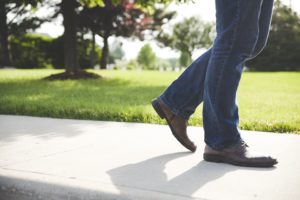
With the establishment of state laws, properties have to adhere to a certain standard of safety. They must work to prevent accidents by removing hazardous conditions in a reasonable amount of time. The negligence of these property owners can result in hazardous conditions that may cause accidents. When individuals enter the premises, they expect relatively safe conditions. There should not be anything that can cause harm to them. These individuals, whether they are consumers or just passing by, assume that owners of a variety of properties will do their best to prevent and remove hazards that could lead to injuries. Unfortunately, negligence of property owners can lead to injuries, causing some individuals to suffer debilitating consequences. Property owners can be held accountable for accidents and injuries resulting from accidents that individuals have suffered from.
What property hazards can cause injuries?
Some hazards that can lead to injuries include weather-related conditions, including uncleared ice and snow, aggressive dogs not confined by a leash or fence, slippery substances, obstacles that obscure a driver’s view and violations of building codes. Property hazards can cause a multitude of accidents, including slip and falls, dog attacks, car crashes, exposure to violent crimes, and more. Depending on the circumstances, you can suffer a multitude of injuries, including head and back injuries, dog bites that lead to permanent nerve and muscle damage, poisoning, and death. With premises liability accidents, these cases can even be attributed to inadequate security standards.
Does an investigation take place?
To prove a premises liability case, injured individuals need to provide information on the burden of proof. You will have to establish that the owner of the property knew or should have reasonably known about the hazard, had a reasonable amount of time to fix the problem and failed to address to issue.If you have been seriously injured, you need to seek medical attention. This can help to document the extent of your injuries for your case. If you are able to collect evidence to document your surroundings or talk with witnesses that can support your claim, you should take the time to do so.
Can poor lighting be a claim made for these cases?
Inadequate security cases can be based on poor or inadequate lighting, lack of or non-working security cameras, poorly trained security staff, not enough security staff, poorly maintained landscaping and broken locks or unlocked perimeter doors. All of these instances can be used to prove a case of inadequate security, putting the liability on the premises.
Our firm understands how serious criminal and personal injury cases are. We are prepared to guide you towards a favorable outcome. If you are in need of experienced legal counsel in New Jersey, please contact The Law Office of Andrew S. Maze today for any criminal and personal injury matters.